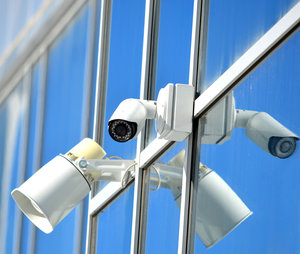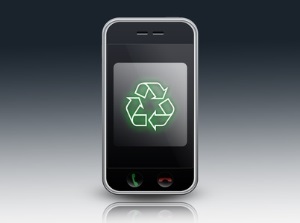
Super User
Fusce adipiscing viverra auctor. Integer lacinia blandit est, vitae dapibus justo facilisis consectetur. Praesent lacinia, ante sed tempus convallis.accumsan magna, nec sagittis odio augue id velit.
Protecting Your Home During Winter with Your Home Security System
 Depending on where you live, the weather can be pretty unpredictable. This is especially true when the seasons are on the verge of changing. It can be freezing one day and in the 80s the next, causing a great deal of confusion to plants, animals, and even your security system. Environmental sensors are one of the best ways to protect your security system during the winter, particularly in colder environments where snow can tamper with electricity. Some environmental sensors also detect freezing temperatures, helping home owners get a head start on protecting their home from damage before it starts.
Depending on where you live, the weather can be pretty unpredictable. This is especially true when the seasons are on the verge of changing. It can be freezing one day and in the 80s the next, causing a great deal of confusion to plants, animals, and even your security system. Environmental sensors are one of the best ways to protect your security system during the winter, particularly in colder environments where snow can tamper with electricity. Some environmental sensors also detect freezing temperatures, helping home owners get a head start on protecting their home from damage before it starts.
In addition to freezing temperatures, some water and flood sensors can help detect the unusual presence of water inside a home. During the winter when snow melts, or perhaps during a heavy rainstorm, flooding can be a potential issue. Some sensors have the ability to both alert home owners of a potential leak and stop any given water line when needed. This ability can help protect against water damage, further reducing property maintenance costs. The sensors that provide both of these benefits are low in price and surely worthwhile, especially in areas with a high incidence for winter flooding.
Using gas heating can be somewhat tricky, especially if you are utilizing this form of indoor heating during a long winter. Exposure to hazardous gas can pose an immediate and long-term health risk. A gas sensor can be helpful for monitoring a leak and making sure inhabitants aren't exposed to deadly poisons, like carbon monoxide. Air quality can also suffer indoors during the winter. Some sensors use monitoring systems that can help control airflow within the home, possibly reducing compounds that are associated with illness.
How do these environmental sensors tie into home security? Home security isn't just about intruders; in fact, home security is about protecting your home from all types of dangers, whether they are human or natural elements. Using an environmental sensor in your home security can be the one extra step that keeps you and your family safe during the winter as well as throughout the year.
If you're concerned about taking care of your home during the winter months, contact us to learn more about the new methods for seasonal home security.
Protecting the Home from Environmental Risks
As a homeowner, there are a few things you need to keep in mind and check for on a regular basis in terms of environmental risks. Some of these risks include lead, air pollution, and drinking water contamination. Keeping up with your home's safety when dealing with these and/or other environmental risks is not only important in the upkeep of your home, but the protection of who is living inside.
If your home was built prior to 1978, have your home tested for lead through either a paint inspection or a risk assessment by a qualified professional, who can in turn, fix those lead hazards for you. Keep in mind, that lead-based paint in good condition is usually not harmful, so keep an eye out for any chipping, keep areas clean of dust, and test on a regular basis.
In terms of indoor air quality, there are a few basic strategies for improvement. One strategy can be to seal off or reduce the emission of the sources of air pollution, such as gas stoves can be adjusted to reduce emissions. Another strategy, is to increase the amount of fresh air coming into your home, open up the windows and just let it flow in, indoor heating and cooling systems do not do that for you. Finally, there are air cleaners on the market, even simple inexpensive options, that can definitely help.
Last but not least, you can always contact your local water supplier and request a local water quality report. That can help you in the decision of which, if any, water filtration system you will need or whether drinking bottled water is a more viable option, remember to consider the cost factor as well.
For more information on how you can protect your home, visit us at http://www.tascosecurity.com.
Protecting Company Equipment Assets
As a business owner, there are a wide range of business topics you have to consider in order to be successful. From having a strong and reliable work force to support your day to day business dealings, to how to maintain a strong client base, by keeping them happy and well taken care of. An often forgotten need is putting in place the security measures necessary for keeping your clients and your company protected. Within a business, there are numerous equipment assets that are important to your business operations, so it is critical to maintain a strong and secure environment to protect those assets. The question is often - how do you do this?
One of the easiest things that a business owner can do is to install a strong security system to secure all of the entryways into your building to protect your equipment as well as key business information. Having an alarm system that is activated when you leave the premises for the day and is deactivated when you return in the morning is a simple solution, but is one that often gets overlooked.
Another way to keep your assets protected is to implement an asset tracking system where encoded labels are affixed to each piece of equipment and is recorded within the software system. More sophisticated systems can actually track when each of those pieces of equipment is physically removed from your business premises.
Information is another key asset to your business. Make sure that you establish, and your team follows, proper protocols regarding business related online transactions. If you are retaining important, valuable electronic information on computer systems be sure that you are protected with a strong layer of computer software that will help protect against viruses and/or hackers from gaining access to your private information. Implement access codes for computer usage, and ensure that they are updated and changed frequently.
The assets that you come to obtain through your business are extremely important to your success, so be sure you are taking every measure necessary to insure that they are all protected from unauthorized access or theft. For more tips visit us at http://www.tascosecurity.com
Protect Your Home Security in the Social Media Age
 Sharing details of our lives online has become commonplace, with sites like Facebook, Twitter, Instagram, and others inviting us to check in at restaurants, post vacation photos, and divulge important life updates with everyone connected to us on social media.
Sharing details of our lives online has become commonplace, with sites like Facebook, Twitter, Instagram, and others inviting us to check in at restaurants, post vacation photos, and divulge important life updates with everyone connected to us on social media.
Unfortunately, little thought is given to the possible home security ramifications of such a revealing pastime. Consider these following suggestions and facts to ensure that you and your family are using social media in a way which does not undermine the home security precautions that so many people take:
- Share vacation info upon return, not before departure: No matter how excited you are about your upcoming European tour, Caribbean cruise, or weekend away to see family members, sharing specific dates and information detailing when you will be out of your home for an extended period of time is not a good idea. Writing for HuffPost, Brad Morehead warns: "an update like this one could be an indication that no one will be home for that period of time. This may not only lead to a break-in, but your home could potentially become host to a party or even squatters."
- "Privacy" only extends so far: Most social media users are unaware of the ways in which information can be gathered about them from their internet usage. Privacyrights.org (PRC) reminds us that not only is the information we post shared, but that electronic tracking gathers further information. The idea that any of our social media profiles are truly private is a misconception: "social networks themselves do not necessarily guarantee the security of the information that has been uploaded to a profile, even when those posts are set to be private." PRC references the May 2010 Facebook issue which caused users' private chat logs to temporarily be visible to unauthorized users. This information can be exploited in a variety of ways, including threatening your home security.
- Once you post, you relinquish control: Your intent behind a post being only seen by your friends or followers doesn't come into the equation. David Beaudrie writes that the construction of social media sites lend itself to the rapid spread of information. He says: "even if you only intend for your friends to see your postings about where you are for the evening, social media sites like Facebook and Twitter are designed with viral postings in mind...As a result, your post may be seen by hundreds of people you don't know within minutes of you posting it." Think carefully about who could possibly see your posts and whether or not you should be sharing the particular details you wish to post!
- Burglars admit to using social media: According to an infographic posted by Bit Rebels and created by Credit Sesame, 78% of burglars surveyed admitted to using Facebook, Twitter, and Foursquare to "target potential properties." Surprisingly, this same infographic highlights the benefits of social media when catching criminals and shares the story of a homeowner who created a Facebook page, posted images from the footage of a break-in at his home, and asked other users to help. Just 36 hours later he had identified the burglars.
Do not let the potential risks deter you from engaging in social media, a medium which has become second nature to a large percentage of the population. Instead, use this information to guide you to make smarter sharing and posting decisions.
What ways can you use social media to make your home more secure? Will this advice help shape your future posting decisions? Let us know on Facebook!
SOURCES:
http://homesecurity.about.com/od/online/a/How-Social-Media-Threatens-Your-Home-Security.htm
https://www.privacyrights.org/social-networking-privacy-how-be-safe-secure-and-social
http://www.huffingtonpost.com/brad-morehead/5-common-social-media-sha_b_4137957.html
http://www.bitrebels.com/technology/how-social-media-compromises-home-security-infographic/
Preparing Your Fireplace for the Winter
A roaring fire in the fireplace can bring comfort, warmth, and a sense of nostalgia to your winter. It can also help to cut heating costs in this economy. Making sure that your fireplace is properly prepared for the coming cold weather is the necessary first step to adding a safe bright spot to the dark winter months ahead.
At This Old House, Shyra Peyton provides a step-by-step set of instructions on correct fireplace preparation. One suggestion encourages homeowners to hire a professional to ensure that the fireplace and chimney are properly cleaned: "The National Fire Protection Association recommends that chimneys be swept at least once a year at the beginning of the winter to remove soot and debris."
Peyton suggests using the Chimney Safety Institute of America to find a certified sweep. The sweep should also check for "cracks, loose bricks, or missing mortar." Better Homes and Gardens suggests that you or the professional sweep check that "the damper is working properly and that the chimney is capped with screening to keep out critters."
The BHG article also emphasizes the importance of carbon monoxide detectors and smoke detectors when winterizing your home. To ensure advance warning if anything goes wrong when you are using your fireplace, remember to check and replace batteries in your smoke and carbon monoxide detectors if necessary.
Building a safe fire from the right materials makes a huge difference. Choose well seasoned hard wood like oak, which is less likely to smoke, as compared to pine which produces creosote. BHG describes creosote buildup: "Burning wood releases volatile gases that cool and condense on the inside of the chimney, forming [the] sticky, smelly, highly flammable" substance.
Don't overbuild your fire; start small to avoid smoke and creosote buildup. High heat can crack a chimney. Also make sure that logs are near the back and kindling is used as a fire starter rather than a flammable liquid.
By following these simple steps, you can ensure a safe, warm, and comforting hearth will be at the center of your home this winter.
SOURCES:
http://www.thisoldhouse.com/toh/photos/0,,20544540,00.html
http://www.bhg.com/home-improvement/maintenance/weatherizing/prepare-your-home-for-winter/#page=9
Prepare Your Heating System for the Winter
With the cooler months approaching, we all need to be sure we are taking the necessary precautions when we deal with our heating system. Here are a few tips to prepare yourself and your system so you are not stuck in the cold this winter.
Test your system. I know what you are saying, but yes, this is probably the most important tip we could give you. Too many times, people wait until the last minute to try their heating system, leaving them virtually no time to resolve whatever issue there may be. Start up your system and make sure it kicks on with no problems, and that your ducts are blowing adequate amounts of air through your home. You also want to make sure that the dampers on your heating system (should you have manual dampers to redirect airflow), are adjusted to the proper rooms you wish to heat more heavily than others.
Change your Air Filter. The air filter is the cardboard square that fits in your heating system that catches all the debris that might be floating around your home. When your air filters get dirty, which they most definitely will no matter how clean you feel your house is, it causes the heating system to work harder than it has to. A clean air filter helps reduce the amount of energy your system must use in order to run properly.
Seal leaks throughout your home. Look at all of your doorways and windows, and seal up areas that might be letting in a draft. Wherever cold air can penetrate your home, it will find a way in, so be sure to make it difficult for that air to do so. Your heating system will be your saving grace in some cases this winter, so be sure to take care of it leading up to the cold weather.
For more heating system tips, visit us at http://www.tascosecurity.com.
Personal Safety against Winter’s Chill
Winter brings joyous holiday celebrations and for many, outdoor activities like skiing, ice skating, or simply building a snowman in the backyard. It can also bring storms which leave homes without power and/or snowed in. Planning for protection against the cold weather, whether you have chosen to be in it or a blizzard has swept through your neighborhood, is the best way to ensure a safe and happy winter season.
The CDC recommends these preparations for outside activity in winter: first and foremost, wear appropriate clothing. Lightweight layers of warm clothes, hats, mittens, scarves, and waterproof boots are a necessity.
It is also wise to familiarize yourself with outdoor safety precautions and "take a buddy...when you are participating in outdoor recreation." If you are alone or with a friend, take a cell phone and emergency kit. Don't overexert yourself when participating in chores.
A list of items that every household should have when preparing for the possibility of being trapped by a winter storm can be found here. It includes: a three day supply for each family member of "food that does not require refrigeration and can be prepared without heat or electricity," a "supply of specialty items such as medications, infant ready-to-feed formulas, and dietary items," and a flashlight with fresh batteries, including spares.
The Weather Channel suggests formulating a "Family Preparedness Plan" for the winter season. The plan should provide for "a place to go when a winter storm warning is issued, depending on where you are...at home, school, work, or if you're outdoors or in your car." Also, choose a place at which family members can meet if you are separated by the storm and select a friend or relative as a severe winter storm contact.
Taking the proper precautions can make your winter a safe and enjoyable one. Dress appropriately and prepare accordingly. And one last suggestion: a generator is an advisable purchase, but only if it is safely installed and operated.
SOURCES:
http://www.cdc.gov/features/winterweather/
http://www.weather.com/life/safety/winter/article/winter-before-the-storm_2011-10-04
http://www.crh.noaa.gov/dmx/?n=preparewintersafety
Outdoor Security Systems
 Similar to installing a home security system to take care of what is inside of the house, why not look into
Similar to installing a home security system to take care of what is inside of the house, why not look into
the importance of security systems that focus on your exterior? By doing so, you are making it that
much more difficult for a potential intruder to make it to your front door. Here are a few important
reasons why installing an outdoor security system is necessary and truly helpful.
Smile, you're on Candid Camera!
You would be surprised at how many criminals wind up on some sort of camera before, during, and/or
after their potential crime. Intruders are finding themselves on more and more surveillance cameras
with trusted security providers. By installing a few simple outdoor cameras, you will be able to keep a
close watch on those possible entry points, to catch anyone foolish enough to smile for the camera.
Let There Be Light
In addition to the installation of outdoor surveillance cameras, establishing a perimeter of motion sensor
triggered lights, will add your home's security. Intruder's like to operate in the dark where they can not
be seen. As soon as a potential intruder enters the sensor's range around your home, the lights shine
brightly for all to see. This could certainly catch the attention of your neighbors who know that you are
away from home.
For more outdoor security system uses, visit us at http://www.tascosecurity.com
Outdoor Home Fire Safety Tips
 Fire safety is an integral aspect of maintaining a home, not to mention a means for protecting family members and surrounding neighbors. Outdoor gatherings commonly held in the spring and summer months are one of the prime times for home fires. Grilling, outdoor lighting, and open flames are three of the most common fire hazards that can occur in and around a home.
Fire safety is an integral aspect of maintaining a home, not to mention a means for protecting family members and surrounding neighbors. Outdoor gatherings commonly held in the spring and summer months are one of the prime times for home fires. Grilling, outdoor lighting, and open flames are three of the most common fire hazards that can occur in and around a home.
Here are three things any homeowner can do to protect their home and their family when celebrating, decorating, or simply living in their home:
- Be Vigilant of Citronella Candles. Torches and candles that are used to deter mosquitos and other annoying insects can be very effective; however, keeping them lit in the outside near the house can expose a home to unnecessary danger. If an outdoor gathering must commence and citronella candles are used, be sure to know how many were lit during the night. Then, at the end of the gathering, extinguish all candles and recount each one to make sure all fire has been put out.
- Practice Outdoor Lighting and Electrical Safety. If the installation of outdoor lighting is necessary for an outdoor family gathering, or if thinking about placing holiday lights on trees or the porch, make sure there are no exposed wires that can come into contact with the elements. If a wire is exposed to water, for instance, it increases the chance of a fire.
- Watch the Barbecue. An outdoor barbecue is a favorite pastime in America; it can also be a tremendous fire hazard if an individual doesn’t know what they are doing. That being said, always be sure a knowledgeable and experienced individual—one that also has a fire extinguisher close at hand—knows how to use and safely handle a grill.
If homeowners believe they’re at risk for a fire due to electrical wiring that is beyond their control, it may be wise for these individuals to seek out the advice of a proper electrician. Even if there is no apparent concern, homeowners should always maintain a clean environment free from wires, open flames, and debris. By doing these things, homes have a higher protection rate and are less likely to experience a risk for fire.
New Uses for Old Smartphones
 Generally speaking, most smartphone users upgrade their device every 12 to 18 months. This makes older smartphones somewhat obsolete in the minds of very devoted techies. While selling an old smartphone can be good for gathering a quick source of extra cash, the product can also be reused to provide a further security investment in your future. Smartphones that are no longer needed for communication purposes can actually be put to good use in your life right now, doubling up as security camera and other helpful everyday tools.
Generally speaking, most smartphone users upgrade their device every 12 to 18 months. This makes older smartphones somewhat obsolete in the minds of very devoted techies. While selling an old smartphone can be good for gathering a quick source of extra cash, the product can also be reused to provide a further security investment in your future. Smartphones that are no longer needed for communication purposes can actually be put to good use in your life right now, doubling up as security camera and other helpful everyday tools.
Here are a few ways you can put your old smartphone to good use for security purposes:
- Security Camera. An old iPhone can actually turn into a potent security advantage for your home. There are certain apps that allow 24/7 video monitoring via a smart phone or tablet. This app can feed the video from the old smartphone to the new smartphone, allowing homeowners to monitor their home while they are at work or on vacation. Cameras need to be connected to WiFi for this process to work.
- A Second Security Screen. A new smartphone often takes the burden of emails, messages, and work-related appointment reminders. This makes having a second screen important, especially if a busy individual wants to check on their home periodically. A second smartphone that is connected to a home security system can be set aside on one's desk to keep tabs on the home without interfering with more important tasks.
- Tracking System. Make an old smartphone a security tracking system to keep track of who comes in and comes out of the home. Some apps allow users to see when someone opens the front or back doors and when they're closed, giving the user an idea of what is going on during the day. An old smartphone can be used solely for this support.
Tracking System. Make an old smartphone a security tracking system to keep track of who comes in and comes out of the home. Some apps allow users to see when someone opens the front or back doors and when they're closed, giving the user an idea of what is going on during the day. An old smartphone can be used solely for this support.
SOURCES:
http://7online.com/technology/new-uses-for-old-smartphones/341724/

